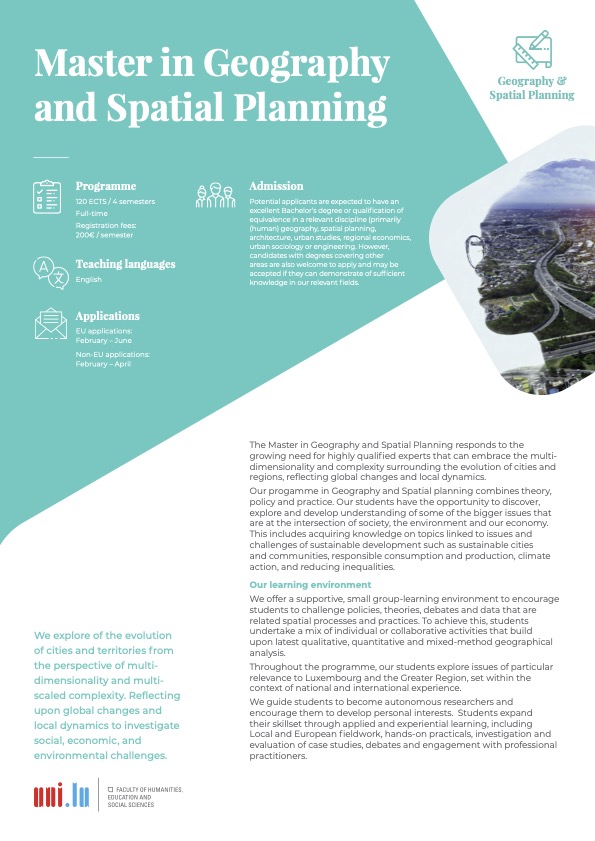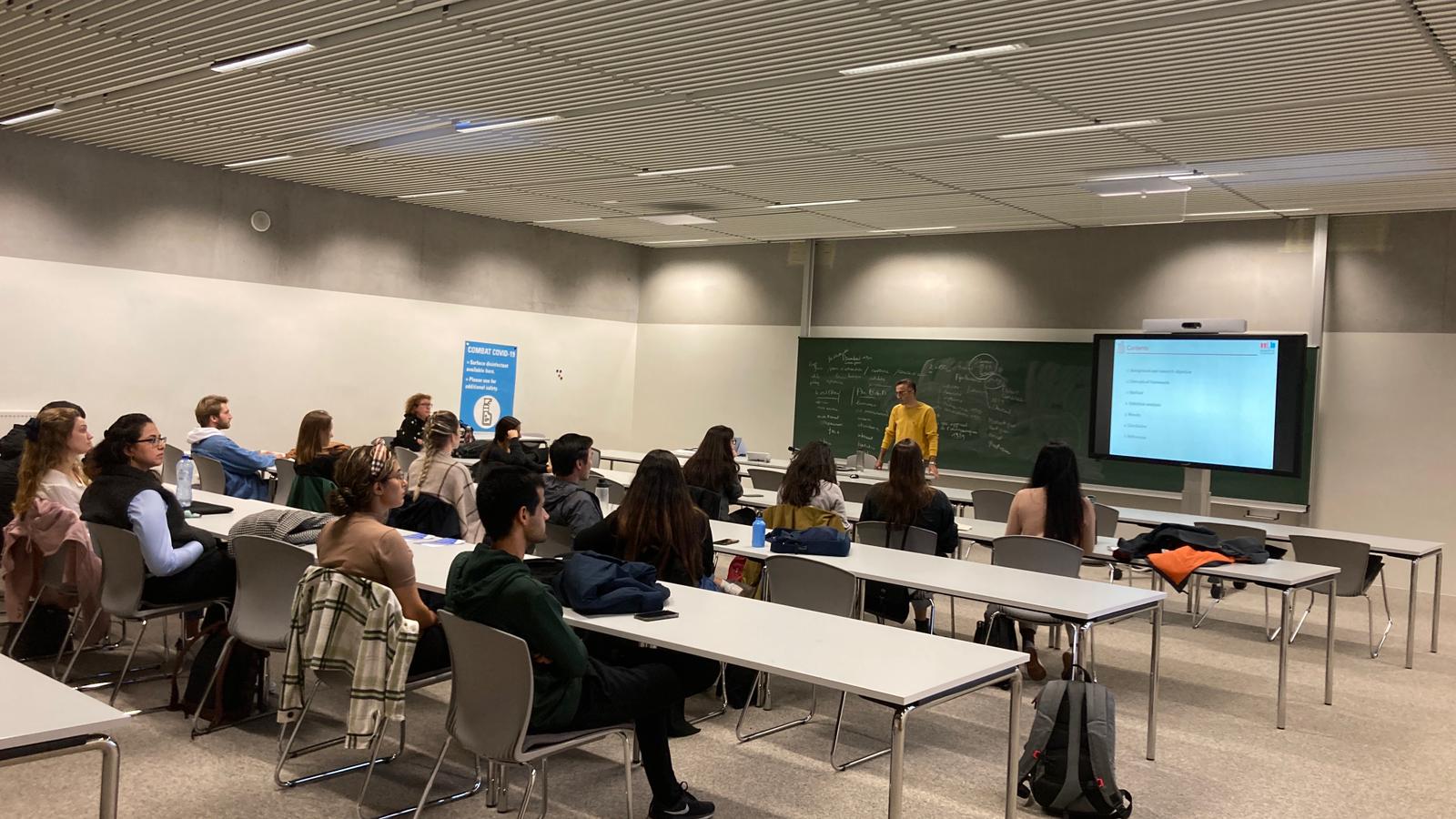Career opportunities
We encourage graduates to become informed, responsible global citizens complementary to whatever professional ambitions they hold. Our graduates hold positions in many diverse sectors and successfully find employment in Luxembourg (those with local languages), across Europe and internationally. Career pathways include:
• Policy & Government
• Academia & research
• Transport & logistics
• NGOs & International Development
• Teaching & Education
More info
Download the flyer

Learning Outcomes
At the end of the programme, students have:
- developed theoretical knowledge and expertise in spatial dynamics, geographical analysis and European planning theory, practices and processes especially linked to urban transformations and regeneration.
- acquired understanding to explain and evaluate relevant research on spatial dynamics, geographical analysis and European planning theory, practices and processes.
- developed skills in managing, analysing and interpreting qualitative and/or quantitative research & geographic data for spatial enquiry and problem-solving.
- acquired spatial analysis skills in R and ESRI ARCGIS PRO.
- explored the multi-dimensionality and multi-scaled complexity of the evolution of cities and (cross-border) regions.
- developed professional judgment to understand issues associated with inequality and sustainability in society and its environment.
